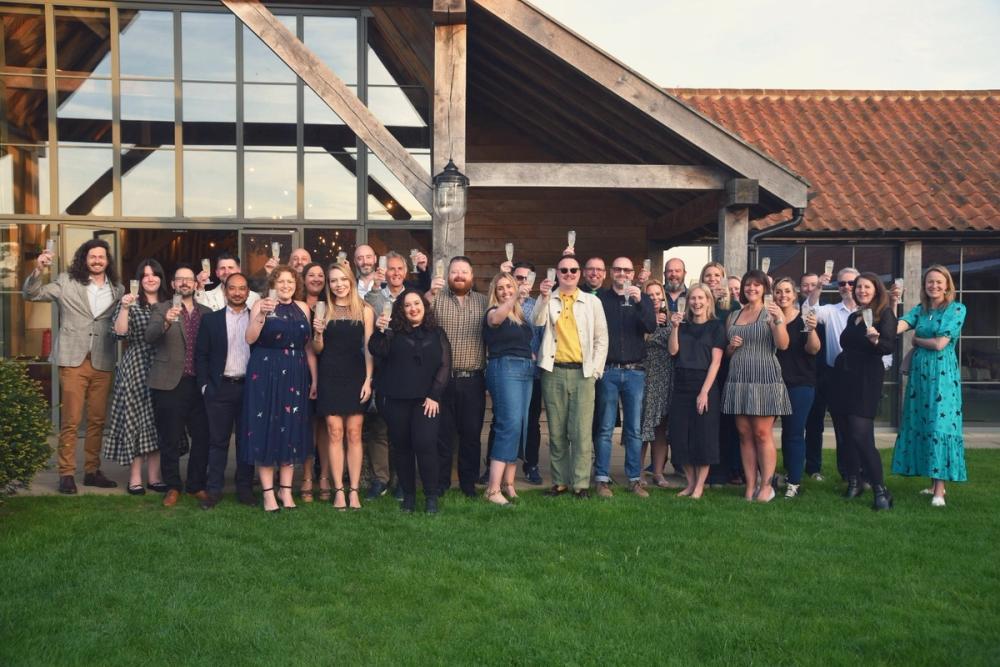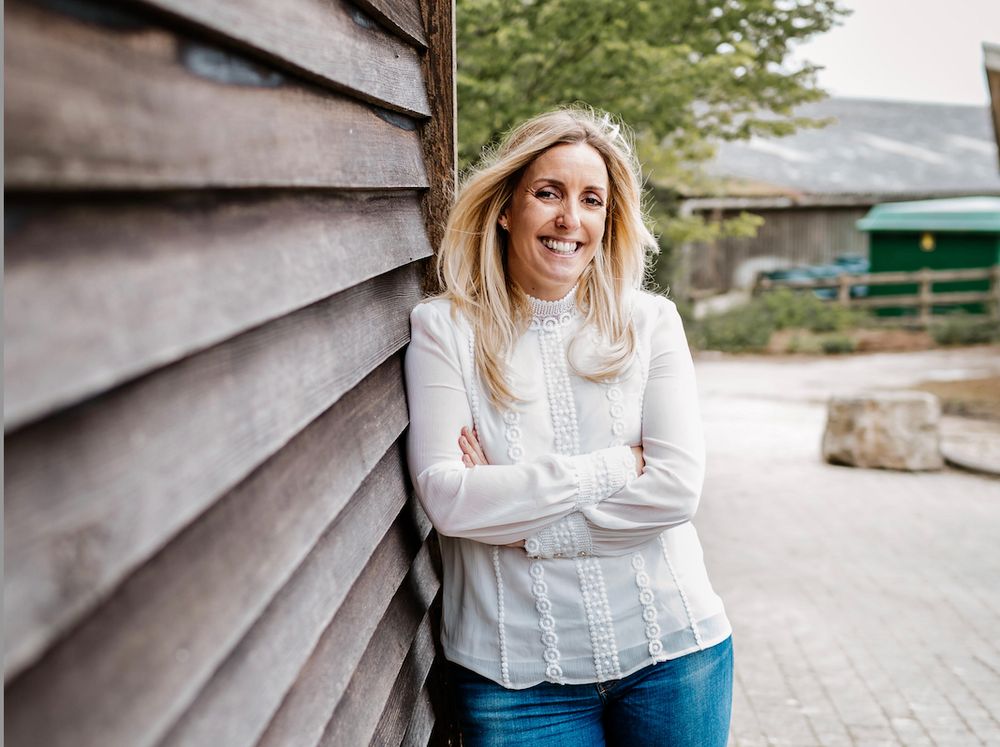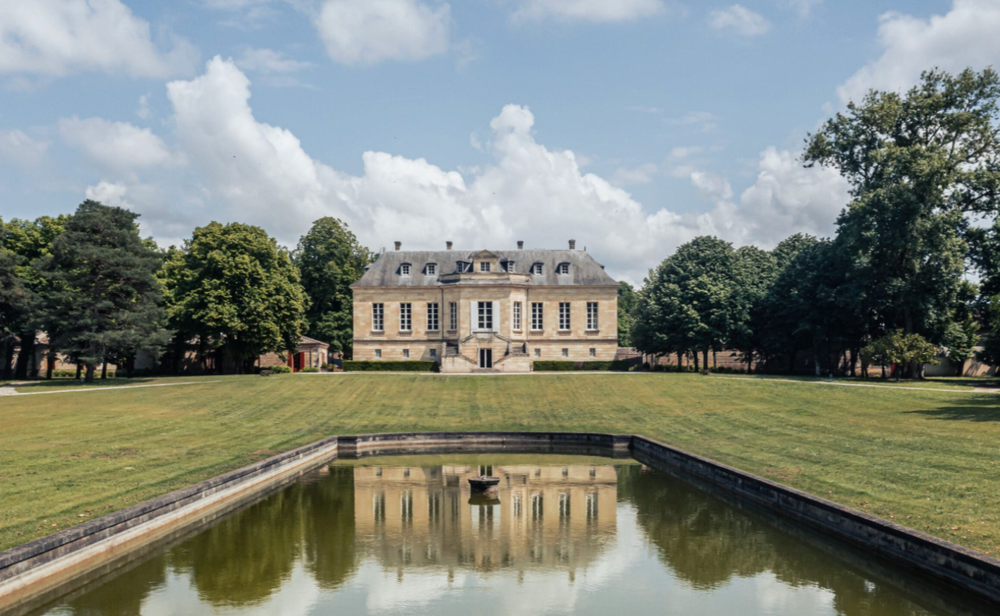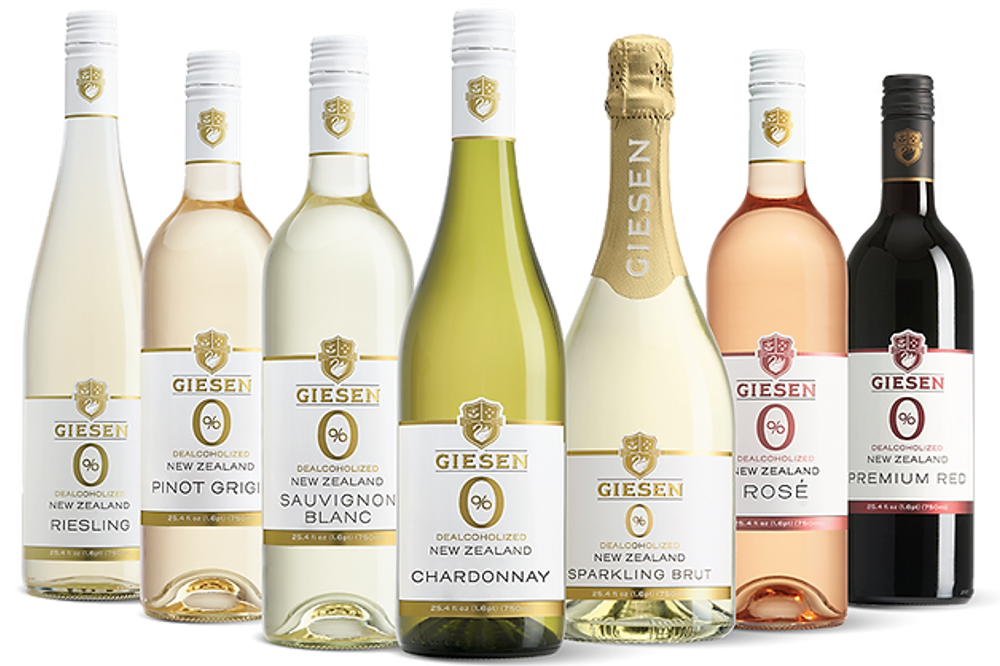As a wine importer you are looking to bring in new producers to your range all the time - but it must be a delicate balance as another producer might mean another winery gets less attention. How do you tackle and address that balance?
The way we operate at North South Wines is in a collaborative basis and we try not to bring competing wineries into the business. Our job is to discover and distribute great value and quality wines that UK consumers will love in a way that upholds the commitments we’ve made to our partners, employees and our planet. This cant be achieved when you have a number of producers who do the same job.
In France, for example, we have carefully curated a portfolio over the last two years which has one key producer from each core region. We spent a long time finding the right partner whose values aligned with ours as a business and who could give us what we need, with a long term view of what we jointly want to achieve.
Having done that it would not work for us to have a competing producer in Bordeaux, or the Rhône, as it will dilute the work we have done and what we can do together.
What criteria do you use when taking on a new producer and their wines?

Buying wine and taking on a new producer is very much a team effort at North South Wines
Firstly we want to ensure that their values match our own. A focus on sustainability is key, and this should be about end to end sustainability, looking at their impact on their community, how they farm and bottle, and what their long term view is.
Quality and value for money is key, we need to be sure that everything we bring into the portfolio offers our customers something special. We want the sales team to have confidence that the wines we choose from the right partners are going to sit well with the customers and will sell.
We also want to work with producers who understand the UK market. We are here as an in-market specialist, but it is key that producers understand the unique dynamics of the UK, and fundamentally understand that patience is a virtue, and wines will not always start selling immediately, but they need work and support to find a home here.
And finally, the dinner party test – would we invite them to our homes for dinner? You need to be a team and work collaboratively and that means being on the same page. Kim (our founder) would also say a love of dogs!
Will you take on all their wines - or have a strategy in terms of how many wines from a new producer you are willing to take on?
We pick and choose carefully. Our aim is usually to start with a small range, with the view that as we establish a brand or a producer we can build the range and bring in more wines. We can sometimes have one range we bring into UK stock, and then a range of wines which are available for EXC orders, which allows us to access a wider portfolio without adding extra pressure on cash flow.
What we do ensure is that all wines are exclusively available to North South Wines, we don’t want to work with producers who will give us a sub section of their range and allow other agencies to take the rest. Again this is about understanding from the producer point of view how the UK operates from day one.
Is it a case of scaling it up. Try with one or two and then build them up? Or does that not really work?

North South Wines' managing director Kim Wilson has built one of the fastest growing wine importers in the UK at North South Wines
It definitely works. You don’t always get the range right first time, sometimes you take a risk on things and they really fly and customers embrace them, sometimes things you think are great don’t get the pick up you wanted, so it’s a case of being prepared to learn from the information you have, and from customer feedback.
Logistics are the main challenge for this, though, as from a new producer we want to ensure we are bringing in a big enough range to make shipping worthwhile, and that the margin return will warrant the work we need to do as a team to get things up and running.
You clearly need to have your customers on board and willing to take on new wines and producers - how do you manage that to get an idea of how interested they are in listing more wines from you?
Our sales team are literally on the ground speaking to customers every day, so we ensure they are always asking what customers think, what is working for them, what they think they are lacking, any issues in supply form other agencies or producers which we can capitalise on.

We use tastings also like Grapest Hits taking place in London and Manchester later this month (click here for details) also to learn and gather feedback from customers.
We send out an annual customer satisfaction survey as part of our B Corp accreditation, and an element of this is asking customers more formally what regions or products they would like to see us look at, and we use this to formulate plans for the coming year.
We are also very attuned to what is going on in the wider market – because we service every sector in the wine trade we can see what is working across a wide view, which allows us to be on top of trends.
If they take on a new producer do you have to accept that might mean they stop buying wines from another one of your producers?
There is always range churn within our customers, and sometimes you win listings, and sometimes products come out of customers ranges. Within this, we have to be confident what we are offering is right – the right quality, at the right price, with the right level of support, and that overall we will grow by offering this.
We also have to be tenacious enough to fight sometimes, and all of our sales teams are ready to ask the right questions, sharpen pricing and offer more expertise if it means keeping and winning listings. But also on the flip side it is our jobs to be open is something isn’t working and then offer a better solution which might mean forcing a de-list but if that is what is right for the customer this is part of the collaboration
Can you give us an example of a producer you have introduced to your range and how you have gone about doing that in order to get customer support?

North South Wines has recently taken on UK distribution for Famille André Lurton wines
We recently started working with Famille Andre Lurton in Bordeaux, a very prestigious producer with great pedigree, but incredibly forward thinking, and very on board with how North South Wines operate. We timed this nicely to co-incide with our 10 Year Anniversary Portfolio tasting, so a great opportunity to get customers to taste the portfolio, and chat to the producer. We had both the managing director and export director present, and they held a tasting and talk for customers and press about their history and future plans.
Outside of this, we ensure our team are fully briefed and engaged with the new range. In this case we took them all to Bordeaux to get fully immersed in the estates, and then sent them out to customers with samples to get the wine in front of as many people as possible.
This is an ongoing piece of work, we don’t stop once a product has launched, and feel the first 18-24 months are key in re-iterating what any new producer can do. Mainly through wine on lips, but also through producer visits to the UK to engage directly with customers.
What steps did you go through with that producer before you decided to take on their wines?
In most instances we find wineries approach us, and everything which comes into my e-mail I look through and make an initial assessment of whether they offer something we need. I also make sure anyone which doesn’t look like its for us gets an e-mail back saying thank you but not thank you.
If it looks interesting it will lead to an initial call or meeting, followed up with a tasting of the wines. We do this as a team, usually five of us including our technical director who is a MW, and the head of both on and off-trade sales teams. If the wines feel like they would be a right fit, and we have worked through the initial commercials and think they would work we look to meet the producer.
Ideally a trip to see them if this is possible, to get a real feel for the people and the way the winery operates, and explain how we operate, what we stand for and how we work.
If everything is aligned at this point we would confirm the range and the support need, start contract work, and start to engage the wider sales team.
We try not to rush this process, we want to do it right and do it once, so it maybe six months before wines land, but we want to make sure we have got everything right at our side. We are also always looking at the portfolio and the market to see what gaps and opportunites we have and then we will go out and actively look to partner with new wineries also.

North South Wines was prepared to wait what ended up being 10 years to get the Giesen Group of wines from New Zealand on board
It took us 10 years to get The Giesen Group from New Zealand on board but we got there in the end. We will wait and keep trying when we set our sights on something.
Do you use promotions and reduced pricing etc in order to introduce them to your customers ? If not what works best?
We find sampling is the best method of getting customers to try wines, and we would never want to undermine our pricing by offering deep discounts to start with as it sets a false impression of the value of the wines. We might do FOC stock on a first order with a customer, or offer POS to allow our customers to engage their consumers.
Is it harder to take on a new producer in terms of taking a risk - with all the extra administration, duty and increased supply chain costs - you have to make sure you are on to a winner from the off?
Taking on a new producer always brings an element of risk, but in our case I think it is always well thought through and researched, and because we work as a buying team, we all want to be in agreement that it’s the right thing to do before pressing go – so it’s a calculated risk.
How do you define success - is it number of customers that list the wine, or the number of cases sold?
A bit of both, but for us margin is also key so this would be the long term measure of success, but short term the distribution and number of listings in each customer is a good measure of success.
How long do you take before deciding if a new producer and their wines are working in the trade?
We always take a long term view, success is not an overnight thing in the wine trade, so we need a minimum 12 months before we really assess, and then it’s a case of working out what we might need to do differently or what support we need from the producer. Is the range right? Is pricing correct? Have we armed the sales team with enough information?
What is the average length of time it takes from initial talks and tasting to actually listing and selling wine into the trade?
Around nine months but it really depends – sometimes things happen very quickly, sometimes we take the view that we want to launch at a certain time of year and we’ll work to that date.
Anything else to say?
For us the key thing is about bringing in what the market demands and looking ahead. We are not sourcing wine for our own vanity, everything has to have a place in our range, and offer something interesting and special, and the key thing is that producers want to work with us and understand how we operate. Sometimes it’s just about being solutions driven too.
- You can read more about North South Wines at its website here.
- North South Wines is one of six distributors taking part in the Grapest Hits tastings in London on September 25 at The Crypt on the Green and in Manchester on September 30 at The Storehouse. Find out more details here.






























